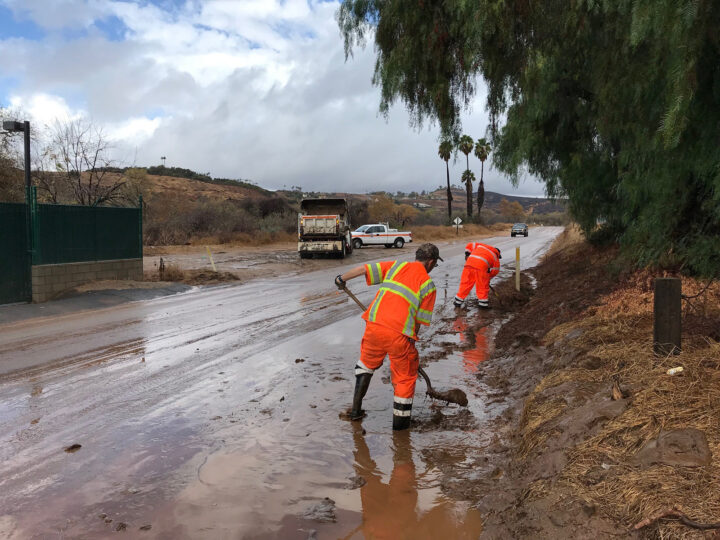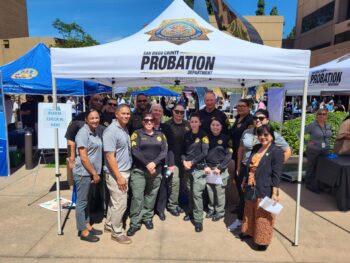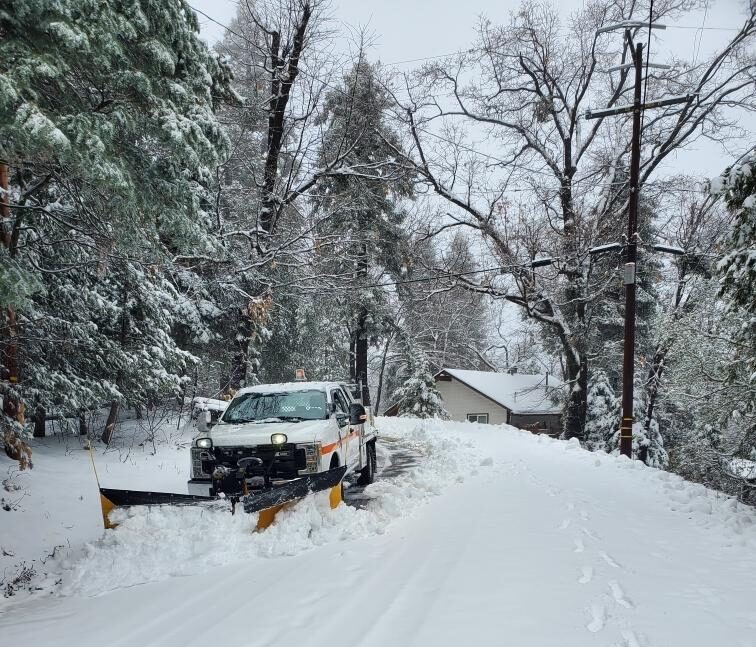Rain, strong winds and cold temperatures predicted to bring significant snow to local mountains as low as 2,000 feet began Tuesday evening and are forecast to continue through Saturday. The winds will additionally bring high surf to beaches, so everyone should take precautions if on the water.
County Emergency Services and Public Works road crews recommend everyone stay alert and take precautions at home and on the roads during the atmospheric river event.
The National Weather Service winter storm systems forecast is available and can be checked for updates.
Damaging winds are expected through the week and could result in tree damage or falling trees or limbs. Driving, particularly if you are driving a high-profile vehicle, is predicted to be hazardous at times.
Avoid driving in heavy rain conditions but if the trip is necessary:
- Slow down to avoid getting into an accident. Remember, it takes longer to stop when roads are wet. Allow yourself at least an extra 15 minutes or so to arrive at your destination to adjust for slower traffic.
- Turn on your headlights to see better and make it easier for other drivers to see you. It’s the law.
- Try to drive toward the middle lanes as water tends to gather in outside lanes.
- Defog your windows for better visibility. Rain can cause windows to fog up. Along the same lines, check your windshield wipers preferably before it rains again and replace them as needed.
- Avoid driving through deep water because it can affect your brakes. If you cannot avoid it, test your brakes afterward to make sure they’ve dried out and are working properly.
- Give the cars in front of you extra distance. The spray from their vehicles — particularly from larger trucks and buses — can hamper your vision. And giving extra space to the guy in front of you also gives you more time to brake or adjust if you need to.
- Keep calm, don’t oversteer or stomp on the brakes if you start to hydroplane or skid when your tires lose traction with the wet road. The Department of Motor Vehicles says keep the steering wheel straight and take your foot off the accelerator so your vehicle can slow down slowly.
- Turn around, don’t drown. In heavy rains, never drive through a flooded roadway if you cannot see the pavement. Even a few inches of water running at the right velocity can sweep a car, and even a truck, and its occupants off the roadway and downstream. The same tip applies to trying to walk or swim across a flooded roadway.
- Stay focused. Remember, it’s illegal, and dangerous, to try to text or use a hand-held cell phone when you’re driving.
- Slow down for the cone zone if you see highway or road workers ahead or to your side. Watch out for DPW crews and equipment.
- If driving in the snow, keep up with the weather reports to see if tire chains are required. Be aware conditions on the ground can change rapidly. Also keep some extra safety equipment in your car.
Chain controls, road condition updates, and other safety advisories are posted on DPW’s Facebook and Twitter sites.
The San Diego County Office of Emergency Services has flood ready information to help you prepare and learn more about flood risks, the most common natural disaster.






